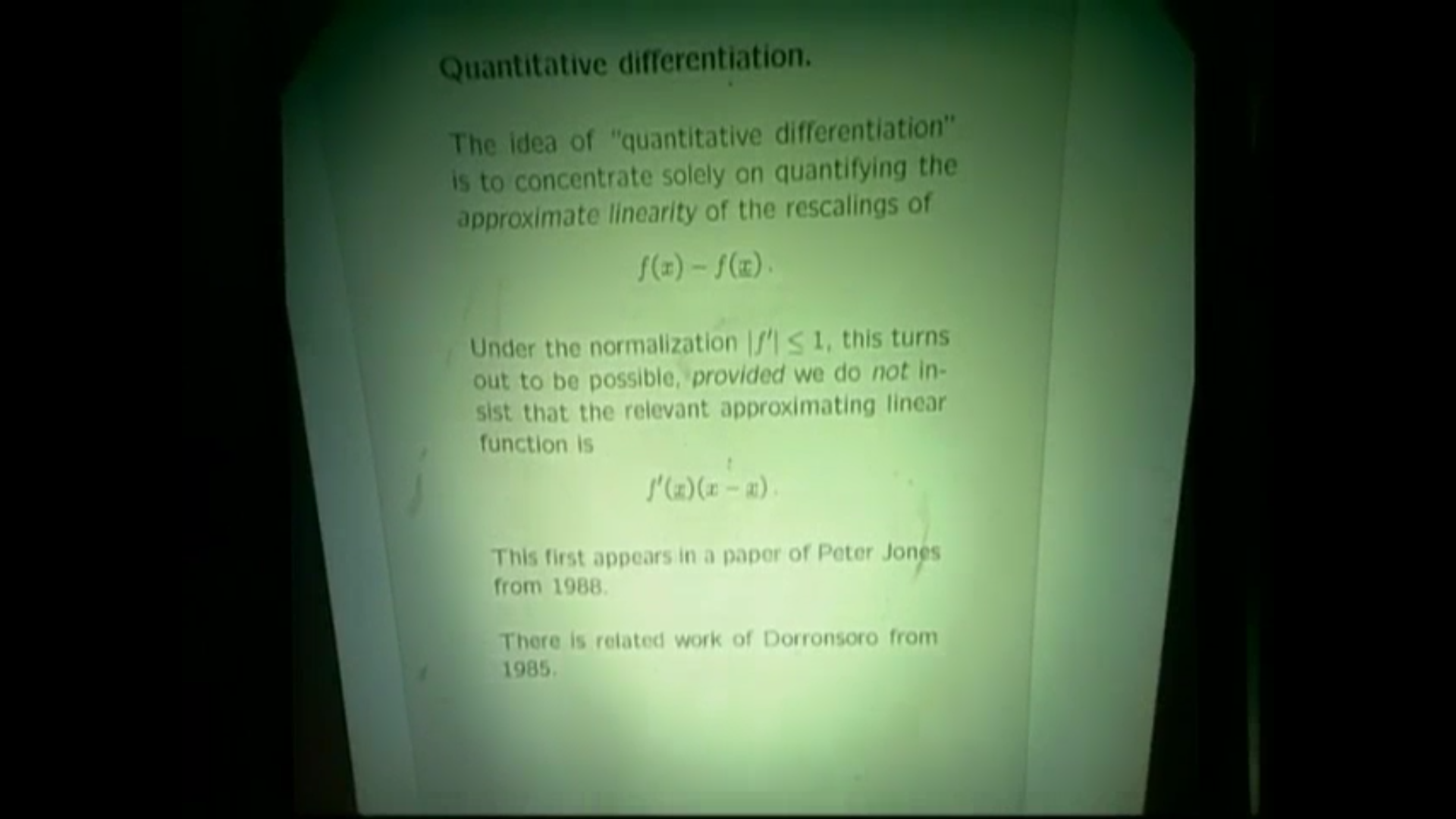Quantitative Differentiation
Presenter
October 21, 2011
Keywords:
- geometric group theory
- measure theory
- embedding theorems
- differentiation theory
- generalized derivatives
- Banach space
MSC:
- 58C20
- 46-xx
- 46Bxx
- 46B20
- 46B22
- 54C25
- 26A16
- 26A24
- 26Axx
Abstract
Let L_n denote Lebesgue measure on R^n. There is a natural measure, C=r^-1 dr times L_n, on the collection of balls, B_r(x) subset R^n, for which the subcollection of balls B_r(x) subset B_1(0), has infinite measure. Let f: B_r(x) to R^n have bounded differential |f'| 0, the measure of the collection of balls on which the deviation from linearity is >= epsilon is finite and controlled by epsilon, independent of the particular function f. We will explain the sense in which this model case is actually a particular instance of a general phenomenon which is present in many different geometric/analytic contexts. In each case which fits the framework, to prove the relevant quantitative differentiation theorem, one must verify a single estimate which we term "coercivity of relative defects". We indicate a number of recent applications.
